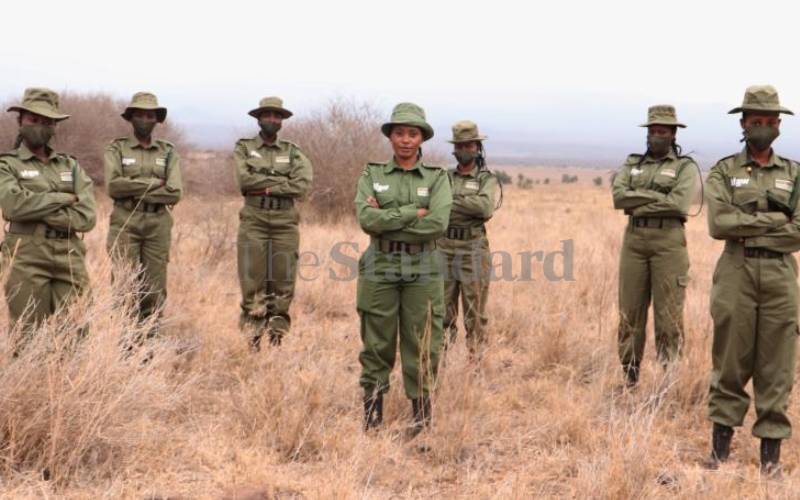×
The Standard e-Paper
Join Thousands Daily

Team Lioness, the all-woman community wildlife ranger unit, at Kitenden Conservancy, Kajiado County. [Robert Menza, Standard]
A large buffalo charges at a group of rangers in Amboseli National Park to protect its territory, forcing them to scamper for safety.